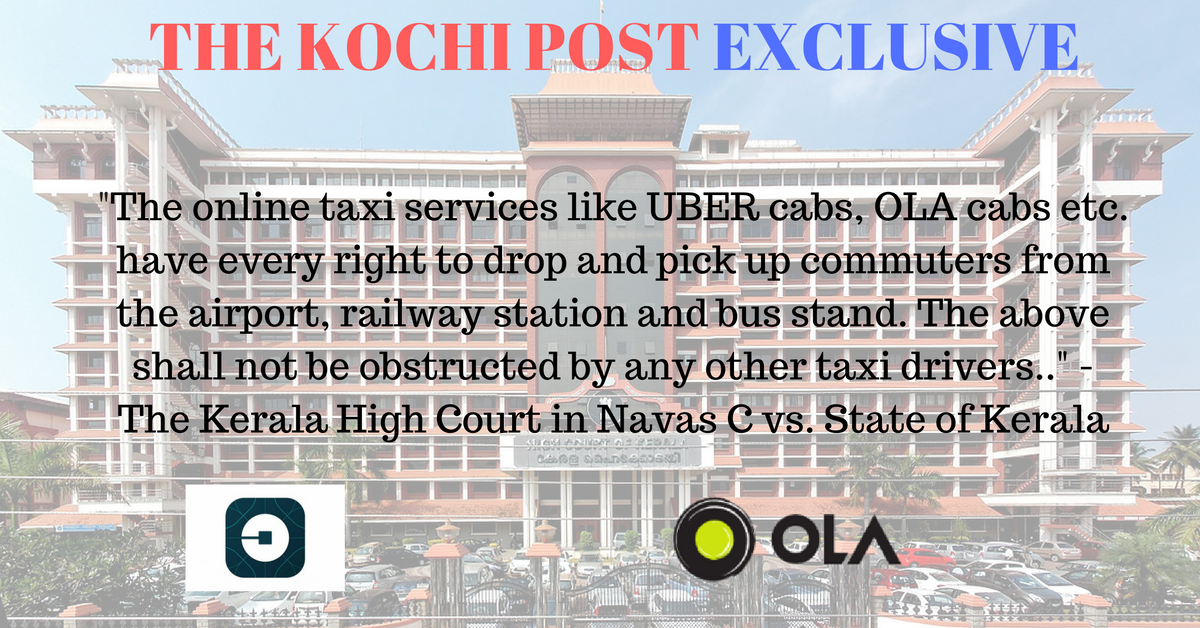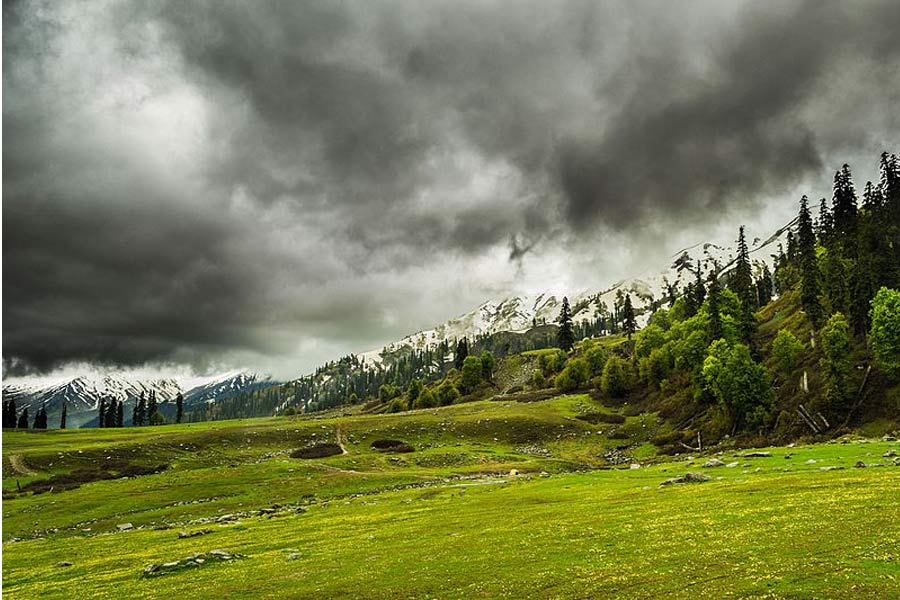A video showing the indecent behaviour of autorickshaw drivers at Ernakulam South Railway Station towards an Uber taxi driver whose cab was booked by Vidya Gopalakrishnan has gone viral and has raised many questions about the permissibility of online taxi services like Uber and OLA in railway stations, airports, etc.
Vidya had shot the video that clearly shows the autorickshaw drivers threatening the Uber driver saying that he is not allowed to pick commuters from the railway station and that he will have to face the consequences of the same. Vidya was also blocked by these autorickshaw drivers, who were also forcing her to take either a pre-paid autorickshaw or taxi from the railway station.
This, however, is not the only incident that has been reported in the city wherein the operators of online taxi services are being manhandled and intimidated by other taxi drivers. Similar cases have been registered in the past. An interim order was also issued by the High Court of Kerala regarding this in accordance to a petition filed by C. Nawas, a driver of an online taxi service.
The order issued by Justice V. Chitambaresh says, “The online taxi services like UBER cabs, OLA cabs etc. have every right to drop and pick up commuters from the airport, railway station and bus stand. The above shall not be obstructed by any other taxi drivers lest it infringes Article 19(1)g of the Constitution of India. The second respondent shall issue appropriate instructions to the police personnel in the State to maintain law and order in the venues afore stated.”
This order has two dimensions to it that The Kochi Post intends to convey to the public.
Such an order primarily means that any commuter can avail an online taxi service from any point he/she wants to and if any other taxi driver is preventing him/her from doing so then this would be regarded as Contempt of Court, which is punishable. Also, apart from curbing the rights of commuters, blocking the service of a taxi is against Article 19(1)g, which states that any person has the right to practise any profession, or to carry on any occupation, trade, or business. No one can violate the Constitutionally granted right of these taxi drivers and they can approach the Court if they feel so.
The second respondent mentioned in the order is the DGP of the State who should be responsible to provide appropriate instructions to the police so as to ensure that the order is being followed.
However, Vidya, who was unaware of this order at the time when this issue took place, says that the police officials from the control room did not help her in any way.
“I was among the autorickshaw drivers who were forcing me to get down from the Uber taxi I had booked and to hire an auto from the station. How could I hire a vehicle driven by those people without any fear? I was not sure how they would react and I suppose it was the responsibility of the police to handle the situation, but they did the opposite. Even the police officers compelled me to take an auto from the station,” she says.
She added that the situation was under control only when police officials from the Central Police Station arrived and helped her settle the issue. She also saw some of the officials reprimanding the taxi driver and telling him not to pick any commuters from the railway station in future. According to them, there is an understanding between the drivers of the online taxi services and the traditional taxi drivers at the railway station that they would not be picking up passengers from the station premises.
We have provided a copy of the order and would like to inform everyone that nobody can violate the rights that are provided by the Constitution.
If anyone is prevented from exercising their right, it is punishable under law. And in this specific case, if the traditional taxi operators continue to harass online taxi service drivers, it can be regarded as Contempt of Court.
The Kochi Post tried to reach out to DGP Loknath Behera but he was unavailable for comment.
Original photograph by By Augustus Binu- Own work, CC BY-SA 3.0, via Wikimedia Commons.








